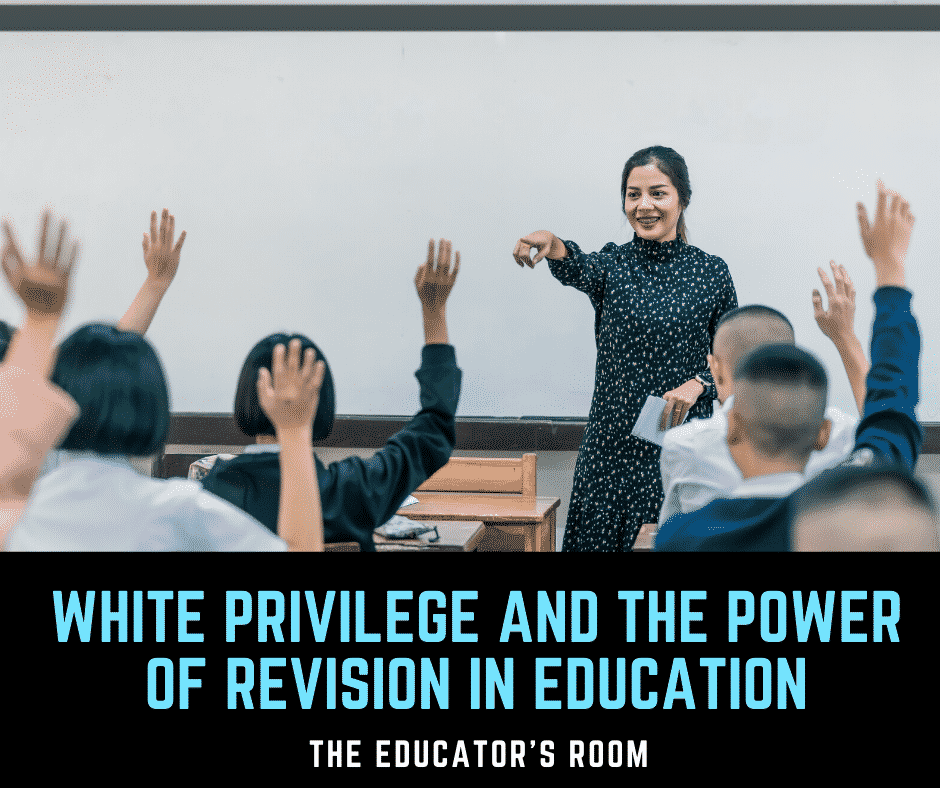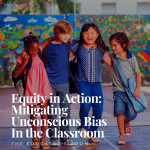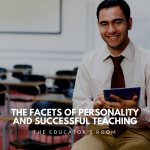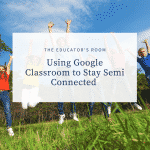My first honest conversation about white privilege came much too late in life. I was a 40-something doctoral candidate taking a class on multicultural education with a dozen other white women. Thankfully, the course was taught by the same (white) professor whose mantra became my own: The more I learn, the less I know. This truth best captures my own experience with understanding white privilege and how we educators should approach difficult topics. We are called to create a bigger space for vulnerability and mistakes and emphasize that life-long learning is more than a catchy mission statement to hang on a wall.
That’s what a graduate-level conversation about white privilege helped me do. I’ve always considered myself an advocate for racial justice. I started a multiracial anti-prejudice group as an undergraduate, organized an anti-Klan protest, and spent my career in Title I schools embracing diversity, yet I still had a lump in my throat when it came to white privilege. As we dove into Peggy McIntosh’s Privilege Checklist, I quickly realized that I was uncomfortable with the term because of an error in my own logic, not the concept itself. I now realize my misconceptions about white privilege are common ones. I also realize that in this age of media saturation, misconceptions of all kinds abound.
[bctt tweet=”It is our duty as educators to emphasize the role of revision in learning, thinking, and creating… and this must happen at a young age. ” username=””]
I am still learning about the power of revision. Although I was fully aware of systematic racism, I walked into my all-white EDD course a little uneasy about mistaken connotations and implications of the word privilege. I was a hard-working grad student, sleeping little, raising a family, working with difficult students. Nothing was given to me. I earned it. I felt like the term privilege somehow undercut what I was doing and had done….or that I had somehow exploited the system to get where I was. And with a pending $454 medical bill and a full-time job, I didn’t really feel all that privileged.
That’s where I was wrong. I fell into the trap of false dichotomies, which saturate our environment. We are constantly limited by either/or thinking and false scenarios of mutual exclusion. We can be both hard-working and privileged. We can experience privilege without exploiting it or even realizing it. As white Americans, we are given privilege without asking for it.
I had approached white privilege with a logical fallacy. I imposed untrue characteristics that made perfect sense and was corrected by a band-aid. Literally. One of McIntosh’s checklist questions asks if you can purchase a bandage in a flesh tone likely to match your own. It’s been years since I first read the question and I still reel with the realization that for some, simple things are loaded with reminders that they are other. This made me realize I was imposing my own experience and interpretation of the concept of white privilege. Like so much in our world, this wasn’t about me. It was about others. And so, as the Black Lives Matter movement grows in strength, I am able to apply the same logic. It’s not about me and it’s not a false dichotomy. Everyone else still matters when we say, Black Lives Matter. And we can speak for an end to police brutality, while also realizing that most officers are honest, hardworking servants of the entire community.
In the endless world of education jargon, we’d call this metacognition—thinking about thinking.
[bctt tweet=”It is clear that our most important role as educators is not teaching our students what to think, but how to think.” username=””]
So, how do we do that?
- Start difficult conversations at a young age .
- Create safe spaces where students (and teachers) feel comfortable owning their mistakes.
- Share your own thinking processes with your students as Think Alouds.
- Teach logic, including common logical fallacies.
- Teach students how to frame an argument in facts, with techniques such as Structured Academic Controversy.
- Build media literacy. Teach students how to recognize bias and propaganda.
- Expose students to as many primary sources as possible with guest speakers and interviews.
Let’s give our students tools so they don’t have to make countless revisions, while we all grow more comfortable with our own mistakes.







Excellent article. I love the concrete steps at the end. It is crucial that we understand multiple perspectives on any given situation. Adding this critical thinking skill to our and our students’ toolbox will help students to critique their own perspectives. Furthermore, incorporating self-awareness in all careers will help us to better understand ourselves and others. And more importantly, we can improve our interactions.
We can further revise education with more emphasis on social sciences, social emotional learning, and etc. to improve the humans that we are developing.
Hajj Womack
CEO
H Womack Consulting LLC
What a great article Aimee. 20 years later and I am still learning from you. I appreciate that you are honest, constructive, empathetic and willing to take a risk to benefit others. I find myself on this same journey and appreciate your perspective.